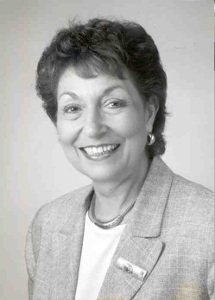Judith F. Krug | |
|---|---|
 Judith Krug | |
| Born | Judith Fingeret Krug March 15, 1940 Pittsburgh, Pennsylvania, U.S. |
| Died | April 11, 2009 (aged 69) Evanston, Illinois, U.S. |
| Resting place | Shalom Memorial Park, Arlington Heights, Illinois, U.S. 42°07′54″N 87°59′54″W / 42.131633°N 87.998346°W |
| Other names | Judith Fingeret |
| Alma mater | University of Pittsburgh University of Chicago |
| Occupation | Librarian |
| Years active | 1962–2009 |
| Employer | American Library Association |
| Known for |
|
| Spouse | Herbert Krug |
| Children | 2 |
| Awards | Carl Sandburg Freedom to Read Award Joseph W. Lippincott Award William J. Brennan Award |
Judith Fingeret Krug (March 15, 1940 – April 11, 2009) was an American librarian, freedom of speech proponent, and critic of censorship. Krug became director of the Office for Intellectual Freedom at the American Library Association in 1967. In 1969, she joined the Freedom to Read Foundation as its executive director. Krug co-founded Banned Books Week in 1982.
She coordinated the effort against the Communications Decency Act of 1996, which was the first attempt by the United States Congress to introduce a form of censorship of speech on the Internet. Krug strongly opposed the notion that libraries should censor the material that they provide to patrons. She supported laws and policies protecting the confidentiality of library use records. When the United States Department of Justice used the authority of the USA PATRIOT Act of 2001 to conduct searches of what once were confidential library databases, Krug raised a public outcry against this activity by the government.
In 2003, she was the leader of the initiative to challenge the constitutionality of the Children's Internet Protection Act. Her efforts led to a partial victory for anti-censorship campaigners; the Supreme Court of the United States ruled that the law was constitutional, but that filtering software on computers in public libraries could be turned off if so requested by an adult guardian. Krug warned that the filters used to censor Internet pornography from children were not perfect and risked blocking educational information about social matters, sexuality, and healthcare.